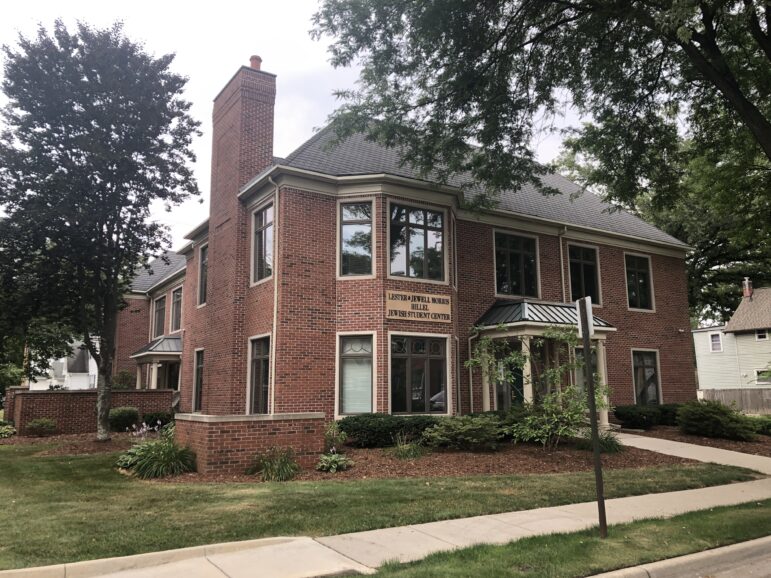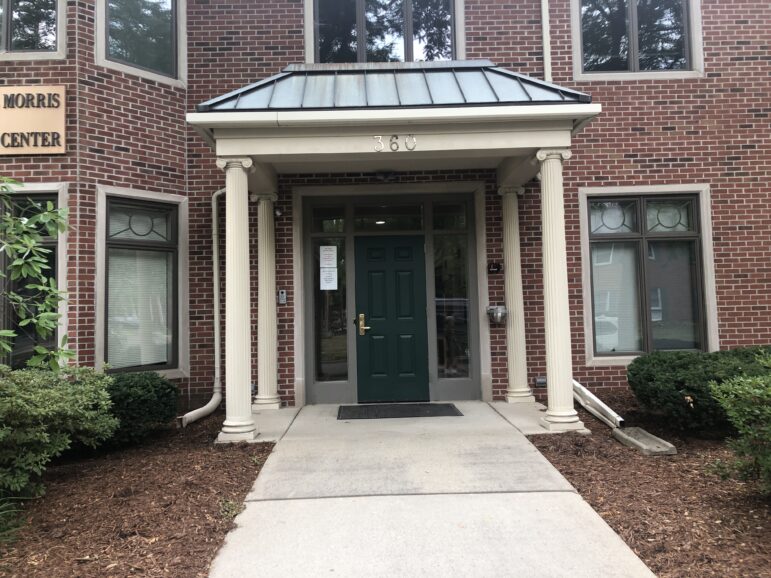Recent comments made by big-name celebrities like Philadelphia Eagles football player DeSean Jackson and well-known Hollywood star Nick Cannon have sparked outrage for the Jewish community at Michigan State.
Earlier in the month both Jackson and Cannon were under a lot of heat for their comments that were deemed anti-Semitic. In an Instagram post, Jackson reposted a photo that was attributed to Hitler, in which “white Jews” are accused of trying to “blackmail America.”
For Cannon, he was fired for promoting hateful speech on an episode of his YouTube podcast, according to the network Cannon works for ViacomCBS
Robyn Hughey, the associate director of the Lester and Jewell Morris Hillel Jewish Student Center, said she was frustrated on how different these issues were addressed.
“I personally think it wasn’t treated to the same level severity,” said Hughey. “The outcry was from the Jewish community, while our community has been speaking out for the Black Lives Matter movement.”

Fight for hate should not have precedent over one another, however Hughey said she feels as some choose to show support when they want.
“People can’t pick and choose what to support,” said Hughey. “We hurt because we show support for such things and speak up, but defending Jews isn’t in others’ categories to defend.”
The fight for anti-Semitism is confronted in different ways. People have decisions and a right to either share their support or not. Hughey, although, feels as one doesn’t need to post on social media to show support.
“For some reason there’s this trend, if someone doesn’t speak out on issues, one assumes they aren’t doing anything but maybe they are speaking out in other ways,” said Hughey. “Social media is a super overwhelming place, everything feels so heavy right now, I don’t judge for those who don’t speak out.”
Hughey added that social media has become a platform to spread the word like no other, and can discourage those to post at times as well.
“Sometimes I don’t post on social media because being on that platform can be scary,” said Hughey.
Hughey said, anti-Semitism is a constant battle and Hillel is continuously having ways to fight it.
“We recently did a Zoom call for students to unpack what happened recently with the anti-Semitism issues,” said Hughey. “We always encourage students to let people know we are there as a support system to let them know they’re not alone.
Students fight against hate
Along with the staff, students also showed how they felt towards the incidents, including members of the executive board.
Julia Levy, president of the MSU Jewish Student Union, said she feels that Jackson’s apology wasn’t good enough.
“I don’t think he got enough backlash and I think people feel it’s okay to say anti-Semitic things due to the lack of backlash,” said Levy. “I saw a lot of posts through Hillel’s Instagram about BLM, but not as much about the Jackson incident, especially since battling anti-Semitism is not advocated for by non-Jews, so it’s important for Hillel to stand up for the community.”

As the president of the executive board, Levy feels as her job is to advocate for her community when needed.
“Another important aspect about the presidency is being approachable and being able to help any Jewish students that are confused, feel helpless and just want to talk,” said Levy. “The more we educate ourselves and others, the more we can combat these issues, especially on our own campus.”
Unfortunately for Levy, she says she has faced anti-Semitism before and said education is so important to combat it.
“Personally, I have faced few attacks of anti-Semitism and have come across many people who have never met someone Jewish and ask ignorant questions,” said Levy. “This is why education can combat a lot of the hate we come across and can make a change on campus.”
Along with Levy, vice president of campus relations Jordan Robinson also said he feels that Jackson’s comments deserved a better apology towards the Jewish community.
“I feel as though the media did not give it the proper attention it deserved,” said Robinson. “Anti-Semitism is such a large issue and it was such a prominent incident coming from someone who has such a large social platform.”
Robinson also said he that even with people posting on social media, it still can only do so much.
“Education is key in this situation in terms of Hillel coming into play,” said Robinson. “The more education Hillel can spread on anti-Semitism and topics related to both Jews and non-Jews, the more people can be aware of these situations and take further action than just a social media post.”
One of the responsibilities for Robinson as vice president of campus relations is to meet with other minority groups across campus to educate them on such issues and prevent it across campus. Robinson is already planning for future events in light of recent events.
“I’m planning unique educational seminars in which the content is tailored towards college students and how anti-Semitism affects them as an individual,” said Robinson.
Reaching other perspectives
This type of hate doesn’t necessarily only effect solely Jewish community. Maddi Jackson, the director of Israel education and programming, is a non-Jewish employee of Hillel, but she feels just as hurt by the comments.
“I was shocked to see people on my social media defending Jackson’s use of a Hitler quote and Cannon basically spewing every anti-Semitic trope in the book,” said Jackson. “I saw people giving them passes because they didn’t have the proper education, but we live in a world where information is constantly at our fingertips.”
Jackson also said that the simplest way for someone in the non-Jewish community to help battle anti-Semitism is to be an ally.
“You have to acknowledge that just because you may not think something is a big deal, other people do, and that’s fine,” said Jackson. “It’s ok to reach out to someone in the Jewish community and say “Can you help me understand?”.
Jackson said too, that being there for someone, is just as powerful than taking action for them.
“The last thing I would suggest is taking action,” said Jackson. “This doesn’t necessarily mean protesting in the streets, but more if you see something say something.”